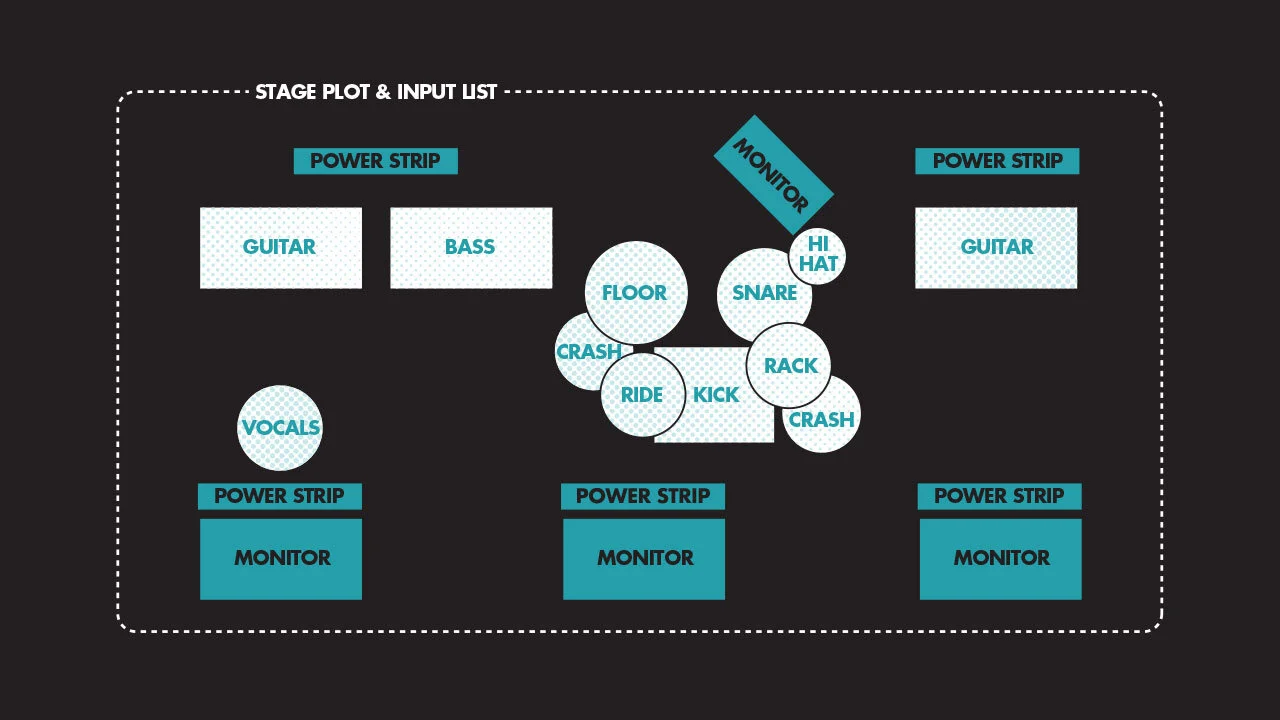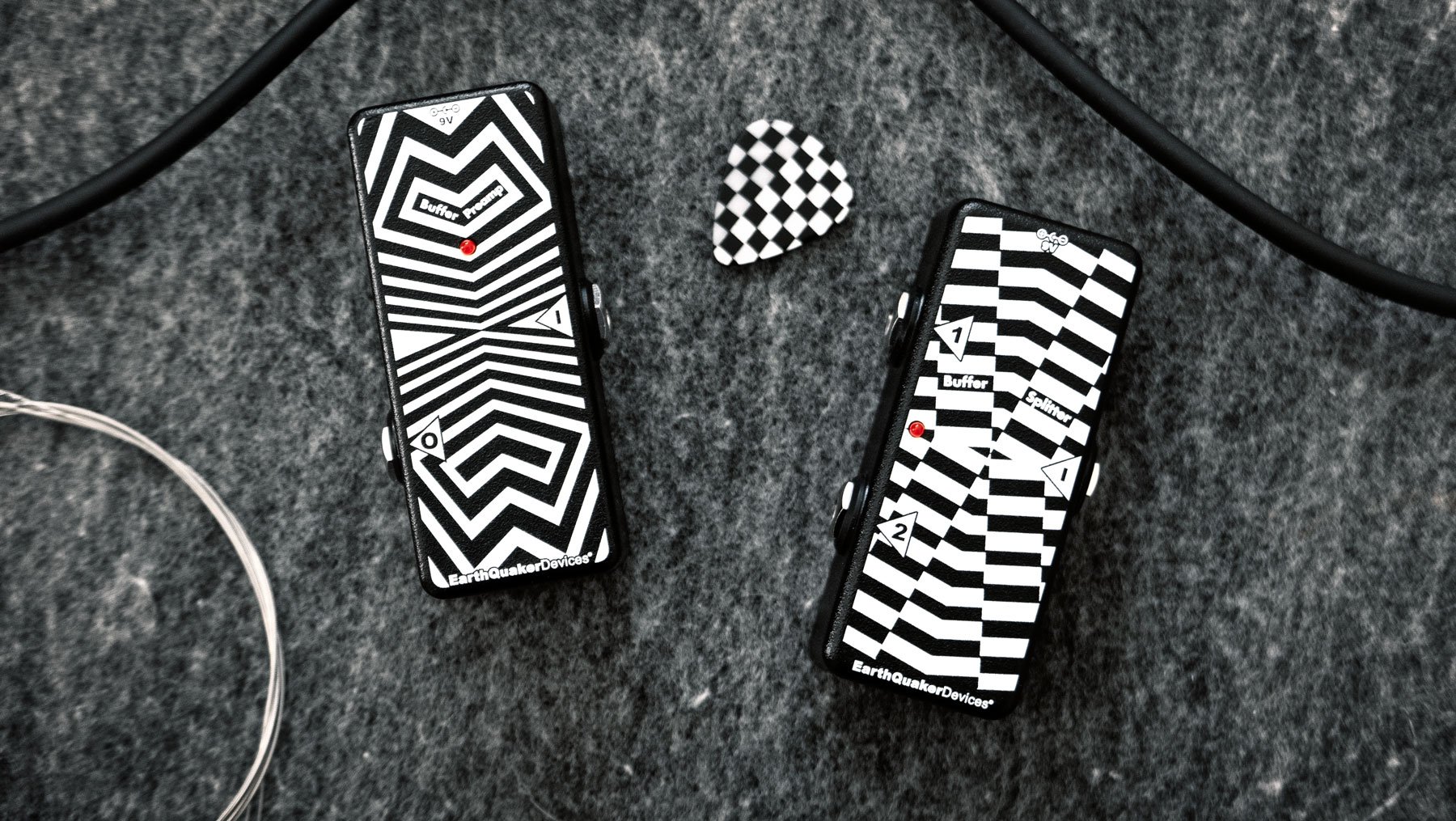How Musicians Can Work With Engineers to Get The Best Performance Possible
Danielle DePalma
If you have been playing shows for any reasonable length of time, you have experienced the good, the bad, and the ugly of a venue performance. Truthfully at this point, I miss it all. It was seven long months of quarantine, and many #SaveOurStages pleas, until I re-entered my home venue this year. Lauran Lee of Khruangbin brought the Bowery Ballroom team back together for one incredible afternoon of memories. She made me think of how many bands I have had the privilege of working with, and how many great shows we have all been a part of.
For over 15 years as a Tour Manager and Sound Engineer I have worked with artists and the house staff to have the best sounding show possible. Despite the fact that we have been off the road and out of the clubs for months, we can use this valuable time to educate and better prepare ourselves for the road ahead. The hope is that once we can return to doing what we love, we can do so more safely, effectively, and be more empowered to have a better show with better results.
Here are some tips and tricks for working with your concert engineers like me to have the best show possible:
The Most Important Rule
Be Nice. Get everyone’s name: Sound person, Box Office, Lighting Designer, Bartender. Know who you are working with, and gain their respect when you need to ask for something. Be patient and polite, and ask thoughtful questions.
Come Prepared
Before your first step onto a stage comes the countless hours practicing in bedrooms/basements/practice spaces or on computer screens. These hours are great pre-production opportunities to get your gear in a good place and have a vision for your set.
Practice space rehearsals with Sharon Van Etten.
Pro tip #1: Have your stage plot, set list and lighting notes printed out and ready to give to your engineers.
Here is another great way to design a clear easy stage plot.
A quick and dirty example of a set list. Still great and helpful!
Pro tip #2: Spend time crafting a template advance email for gathering information about the gig[s].
Check out 7 Tips to Make Every Gig your Best Gig for more gems.
It does not matter if it is a local gig or a tour. In between practice breaks, work on the following:
Get things in cases and get a pedalboard. It should match the kind of gigging you are doing. I tend to recommend something rigid and waterproof, with a power bank for all of the pedals to attach to. This ensures your investment stays secure through the rigors of the road, and you save time during the setup and soundcheck.
LABEL EVERYTHING. You will constantly be in dark clubs that have very high turnover and bands with very similar gear. Keep what is yours.
Get caster wheels for your amps [if you do not already have them]. It will help save your back, and help with load-in. I often load merch or pedals/guitars on top and save myself multiple trips.
Neaten your cable runs and guitar strings, and always have backups. Keep at least two long [25’ or more] instrument cables on hand and find places to keep cables and guitar picks in your pedal board case. Spares should live in your guitar or amp case. String your guitar properly the first time, and leave plenty of time for the string to settle before your show. Keep many sets of backups.
Buy your own vocal mic! It’s the pandemic, and club vocal mics were already gross. This will help you get used to how you sound through a PA, and what vocal techniques work best to achieve the sound you are going for. Keep your mic in your pedal board case for easy set up at soundcheck.
Fun tip: with some careful signal adaptation, some vocal mics pair great with effects pedals!
DURING Practice:
Wear earplugs! This will do several things: Save your hearing in the long run, help prepare you for using in-ear monitors if you would like to go that route, and protect you from a loud stage, and get your brain to focus in on the sound you WANT to hear.
Make sure amps are at a decent volume. If you need to hear more of yourself, move closer to your amp. Avoid the urge to turn up. If you can achieve your guitar tone at a reasonable volume, this will make your sound engineer, and your bandmates, much happier at the gig.
If an acoustic instrument [like drums] sound too loud when you are practicing, try using tape or cloth to dampen the sound. Work with your drummer to achieve performance dynamics that work best with your sound.
If using electronics, make sure all of your samples have the same level of dynamics. The average volume should be the same for all tracks. The loudest parts of the song should not overpower everything, and the quiet parts should still be audible when you are practicing. It is a good idea to get these electronic tracks or samples mixed and mastered specifically for live performance.
Check out this great interview about the importance of well produced playback tracks with some of my favorite touring engineers.
And now you are there. The day of the show. You have confirmed your soundcheck time, you showed up ten minutes early, and you have just loaded in your equipment and introduced yourself to the staff. Here is where we put together all of the pieces for a great soundcheck, and a great show.
Example of a typical run of show with soundcheck schedules and set times.
Maximize soundcheck time. This could mean using the venue backline, or presetting your amps and the drum kit in any available space you can find.
Once on stage, find power, set your pedals, plug in your amp, and quickly dial in your sound. Next, have a quick conversation with your sound engineer about how you would like your band to sound, and what vocal effects you would like. Then, stand by for the sound engineer to call out each instrument for a line check. This is a great opportunity to dial in your monitor mixes. If something sounds different than you would like it to, the following descriptors are great to convey to the engineer for adjustments:
Bass heavy
Tinny or thin
Boxy [as if someone has their hand over their mouth and is talking to you]
Muddy [lacking fidelity or high end frequencies]
Oftentimes, the most effective change is a volume adjustment.
Further reading: Understanding the Language of Audiophiles
Choose The Proper Soundcheck Song[s]
Often you will only have time for one or two. Choose songs with a wide range of dynamics, where every instrument will be played. Choose a song you need to work on, that will get you feeling great for the show.
Afterwards: give the sound person a set list with notes to help them through your set, and say thanks if you had a pleasant experience!
Remember, you are your greatest advocate. Build your support network and make sure they are there for soundcheck to give you helpful feedback.
Pro tip: your friends should not be talking to the engineers - you should. It becomes confusing when someone who was not introduced comes out of the blue to start demanding changes. You and the engineer have developed the relationship; use and build that trust.
If after all that, you’re still unhappy, consider hiring your own engineer to come along! Investing in your team and your support network on the road is invaluable.
Sharon Van Etten At Webster Hall.
Important resources:
Danielle DePalma is a live sound engineer and the Production Manager of the Bowery Ballroom. She has been fortunate to tour with artists like Sharon Van Etten, Florence + the Machine, Emily King, and Josh Ritter. During the pandemic, Danielle has kept sane through motorcycle rides and adventures with her new adopted puppy, Huck.










